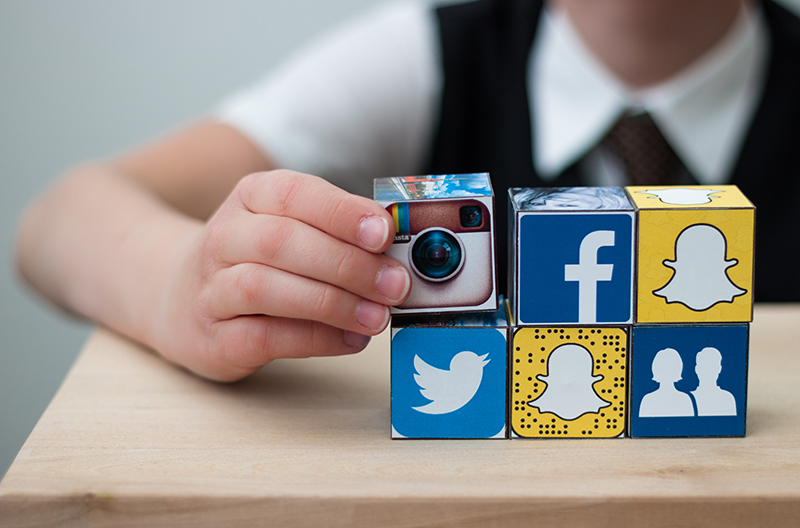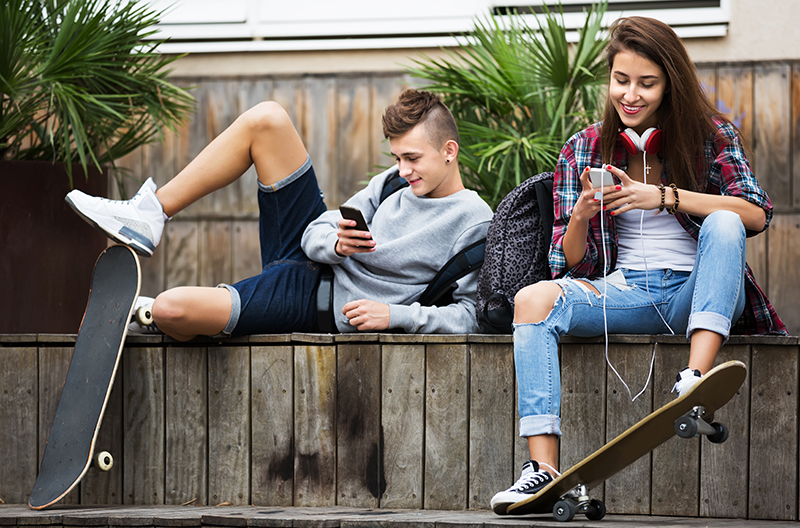Social media can damage body image

Here's how to counteract it!
Social media is a wonderful way to connect with others, share experiences and opinions and express ideas. But it can have a dark side for body image, which requires a critical and thoughtful approach to counteract.
People who have body image concerns feel worried, distressed and unhappy about their appearance, weight or shape. They may be concerned about being too large, too small, not curvy enough, or not muscular enough.
Body dissatisfaction of this kind causes a great deal of distress and can lead to severe psychological and physical problems. Consequently, body dissatisfaction has been identified as a serious public health problem.
Viewing pictures in magazines and on TV that show thin, attractive women or muscular, lean men has been shown to lead to body dissatisfaction. New research is looking at effects of use of social media such as Instagram, Facebook, and Pinterest. This shows people who frequently use social media are also likely to have problems with body image.
Social media can be a dangerous body image environment
Social media can be toxic for body image. It is highly visual and interactive, and appearance is central to success.
Collecting "likes" and followers provides an immediate marker of achievement and popularity. These feed directly into users' sense of self-worth.
The interactive and sometimes anonymous nature of social media means feedback is instant and unfiltered. Negative feedback and criticism abound. This creates greater pressure on appearance and competition to outdo one's peers.
Using social media often revolves around appearance. People spend a great deal of time checking out how they look compared with others – friends, peers, and celebrities – and spend a lot of time talking about appearance. This might be chat and interactions about trying to lose weight or bulk up muscle.

But more subtle interactions happen too, including things like receiving compliments about appearance that reinforce the importance of body image in how you are judged as a person. These "appearance conversations" and "appearance comparisons" play an important role in the development of body image concerns.
The way people present themselves on social media can also contribute to problems for body image. People often strive to present themselves in the best light, especially in relation to how they look.
It is not unusual for people to spend a great deal of time thinking about their next "selfie" opportunity and planning the right pose to capture their best and most attractive self. People often edit or add filters to their selfies, take many selfies before choosing one to post, and worry about the reactions of others.
The greater the effort and concern around creating and posting the most attractive selfies, the greater the body image concerns.
People can become trapped in a vicious world. They anxiously await "likes" and feedback from others, then feel wounded and disappointed if the desired response is not forthcoming. They then feel even more distressed and anxious about their appearance.
The importance of (social) media literacy
Although the social media environment can cause difficulties for body image concerns, not all people are affected in this way. It is not entirely clear why this is the case, but research with traditional media offers some clues.

Recent research shows teenage girls who take a critical approach to viewing idealised appearance images in traditional media are protected against a negative effect on body image. This critical approach to understanding media is called media literacy.
This includes questioning the truthfulness of a media image, questioning whether an image has been manipulated to obtain a particular effect, and assessing what are the motives behind the way an image has been presented.
When girls take this critical approach, their body image is less affected by viewing traditional appearance media. Gains made in traditional media literacy prevention programs may be applied to social media arenas too.
"Social media literacy" not only includes an understanding of the messages behind commercial media advertising seen on social media sites, but focuses on the way people interact on social media.
This includes an understanding about how friends, peers and celebrities use social media. It is also about understanding the fact that people carefully select or modify images of themselves to present the best picture of themselves and their world.
It might be anticipated that the more people understand the social media world, the less likely they are to make comparisons with the images they see on social media, which they then interpret in a negative way.
If this proves to be the case, enhancing social media literacy through school programs or social marketing campaigns is likely to have a protective effect in relation to body image.
By: Siân McLean and Susan J Paxton
The Conversation
Published: September 26, 2016
- enquiries@schooltv.me
- •
- +61 3 8538 1644
- •
- Ts & Cs
- •
- Privacy Policy
- •
- Get Alerts
- •
- © 2026 SchoolTV ANZ Pty Ltd

